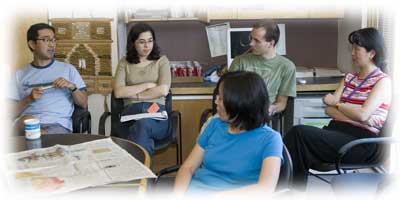Faculty Laboratories
The CCIB is the home of laboratories for a number of members of the Harvard faculty. Click on any of the names or photos for more background information about them.
|
| Fred Ausubel |
Frederick M. Ausubel is Professor of Genetics at Harvard Medical School and the Ernst Winnacker Distinguished Investigator in the Department of Molecular Biology at Massachusetts General Hospital. Dr. Ausubel’s scientific work is primarily focused on host-microbe interactions.
Dr. Ausubel was elected to the National Academy of Sciences in 1994, the American Academy of Microbiology in 2002, and the American Academy of Arts and Sciences in 2003. In addition to serving on a variety of editorial boards, Dr. Ausubel is founding editor of the widely-read Current Protocols in Molecular Biology. |
 |
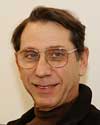 |
|
| Mason Freeman |
Dr. Freeman graduated from Harvard College and received his M.D. at the University of California, San Francisco in 1979. Following clinical training, he worked as a post-doctoral research fellow in the Biology Department of the Massachusetts Institute of Technology before returning to the MGH to head the Cardiovascular Health Center. He became Chief of the Lipid Metabolism Unit at the MGH in 1992.
Mason’s research work has centered on the role of macrophages in atherosclerosis with particular interest in the trafficking of lipids through these cells. |
|
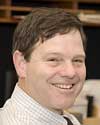 |
|
| Deborah Hung |
Deborah Hung is the most recent faculty member to join the CCIB. She is a physician-scientist combining chemical and genomic approaches to define host-pathogen interactions and to reveal the critical pressure points of infectious disease. Deborah received her Ph.D. in chemistry from Harvard University, and her M.D. from Harvard Medical School.
She holds positions as an infectious disease physician at Brigham and Women's Hospital and Massachusetts General Hospital,and an attending critical care physician in the Medical Intensive Care Unit at Brigham and Women's Hospital. |
|
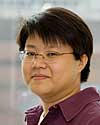 |
|
| J. Keith Joung |
J. Keith Joung is Assistant Professor of Pathology at Harvard Medical School and Assistant Pathologist and Director of the Molecular Pathology Unit at Massachusetts General Hospital. His research interests include understanding how Cys2His2 zinc fingers, the most common domain encoded in the human genome, mediate specific protein-DNA and protein-protein interactions and using cell-based selection methodologies to engineer artificial “designer” zinc finger domains.
Keith received his undergraduate degree from Harvard College and his M.D. and Ph.D. degrees from Harvard Medical School.
|
|
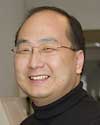 |
|
| Gary Ruvkun |
Gary Ruvkun is Professor of Genetics at Harvard Medical School. His lab uses C. elegans molecular genetics and genomics to study problems in developmental biology and physiology. Dr. Ruvkun is a graduate of UC Berkeley and Harvard. Dr. Ruvkun discovered that the nif genes are conserved over 3 billion years of prokaryotic evolution, which prepared him for the comparative genomics of the more recent past.
Dr. Ruvkun began to work with C. elegans as a postdoc with Bob Horvitz at MIT and Walter Gilbert at Harvard, where he explored the heterochronic genes that control the temporal dimension of development. |
|
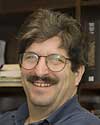 |
|
| Brian Seed |
Dr. Seed is the Director of the Center for Computational and Integrative Biology and Professor of Genetics at Harvard. A graduate of CalTech, he received both his B.S. and Ph.D. degrees there. Dr. Seed is the author of numerous publications molecular biology, genomics and proteomics. He holds numerous patents; see his CV for a list.
Brian's laboratories include groups in automation, bioinformatics, chemistry, microarrays, proteomics, selection, sequencing and synthesis, in addition to his own Seed Lab.
|
|
 |
|
| Lynda Stuart |
Lynda Stuart is a physician-scientist and received her medical degrees from University of Cambridge and University of London. She is a member of the Royal College of Physicians, UK. She trained in internal medicine and nephrology in the UK, working in London, Oxford and Edinburgh.
Her interest is in the role of innate immunity and phagocytosis both in the context of tissue remodeling and of host-pathogen interactions. |
|
 |
|
| Jack Szostak |
Dr. Szostak is an Investigator of the Howard Hughes Medical Institute, Professor of Genetics at Harvard Medical School, and the Alex Rich Distinguished Investigator in the Department of Molecular Biology at the Massachusetts General Hospital. His current research interests are in the laboratory synthesis of self-replicating systems and the origin of life.
Dr. Szostak is a member of the National Academy of Sciences, and a Fellow of the New York Academy of Sciences and the American Academy of Arts and Sciences. In 2000, Dr. Szostak was awarded the Medal of the Genetics Society of America. |
|
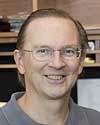 |
|
| Ron Tompkins |
Ron Tompkins graduated Summa Cum Laude from Tulane University Medical School and holds a doctorate in chemical and biomedical engineering from the Massachusetts Institute of Technology.
Dr. Tompkins is the Chief of Burns Service at the Massachusetts General Hospital and the Sumner Redstone Professor of Surgery at Harvard Medical School. He also serves as Chief of Staff of Shriners Hospital for Children in Boston. Dr. Tompkins' primary research interests are in the physiology of inflammation and burn healing.
|
|
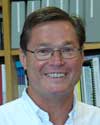 |
|
| Jia Wolfe |
Dr. Wolfe has extensive research and management experience in the biotech industry and has a special interest in drug discovery and interdisciplinary research in chemistry and biology. She currently directs a drug discovery group within the Center for Computational and Integrative Biology.
Her training under Professor Thomas W. Bell piqued her interest in the life sciences. Dr. Wolfe’s interdisciplinary expertise was further developed during her postdoctoral work at Harvard University with Professor Gregory Verdine, a leader in the field of chemical biology working at the interface of chemistry, molecular biology, and structural biology.
|
|
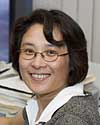 |
|
| Ramnik Xavier |
Ramnik Xavier is Assistant Professor of Medicine at Harvard Medical School and attending physician in the Gastrointestinal Unit at Massachusetts General Hospital.
He is Board Certified in Medicine and Gastroenterology. Following clinical training, he completed his post-doctoral fellowship with Brian Seed in the Department of Molecular Biology at the MGH Department of Genetics at Harvard Medical School. While in the Seed lab, Ramnik and his colleagues demonstrated that lipid rafts play an important role in T cell signaling. His current research focuses on PDZ proteins in cell signaling and genomic approaches for dissecting novel pathways in inflammation and cancer. |
|
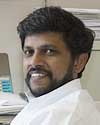 |
| |
|

